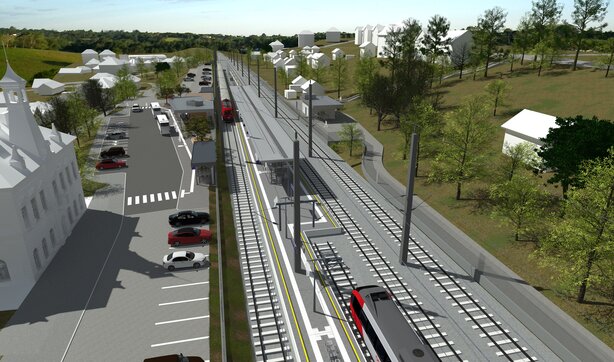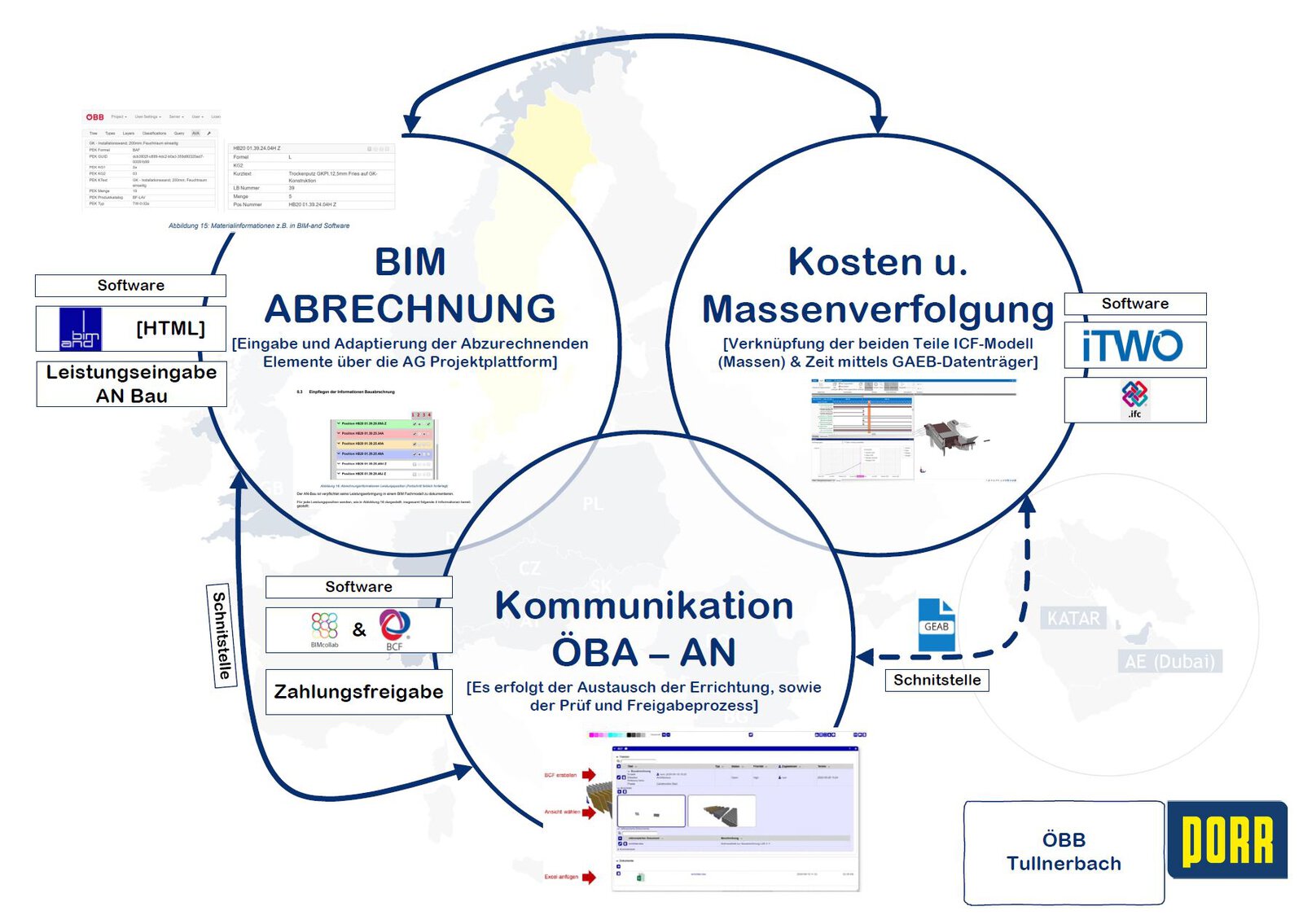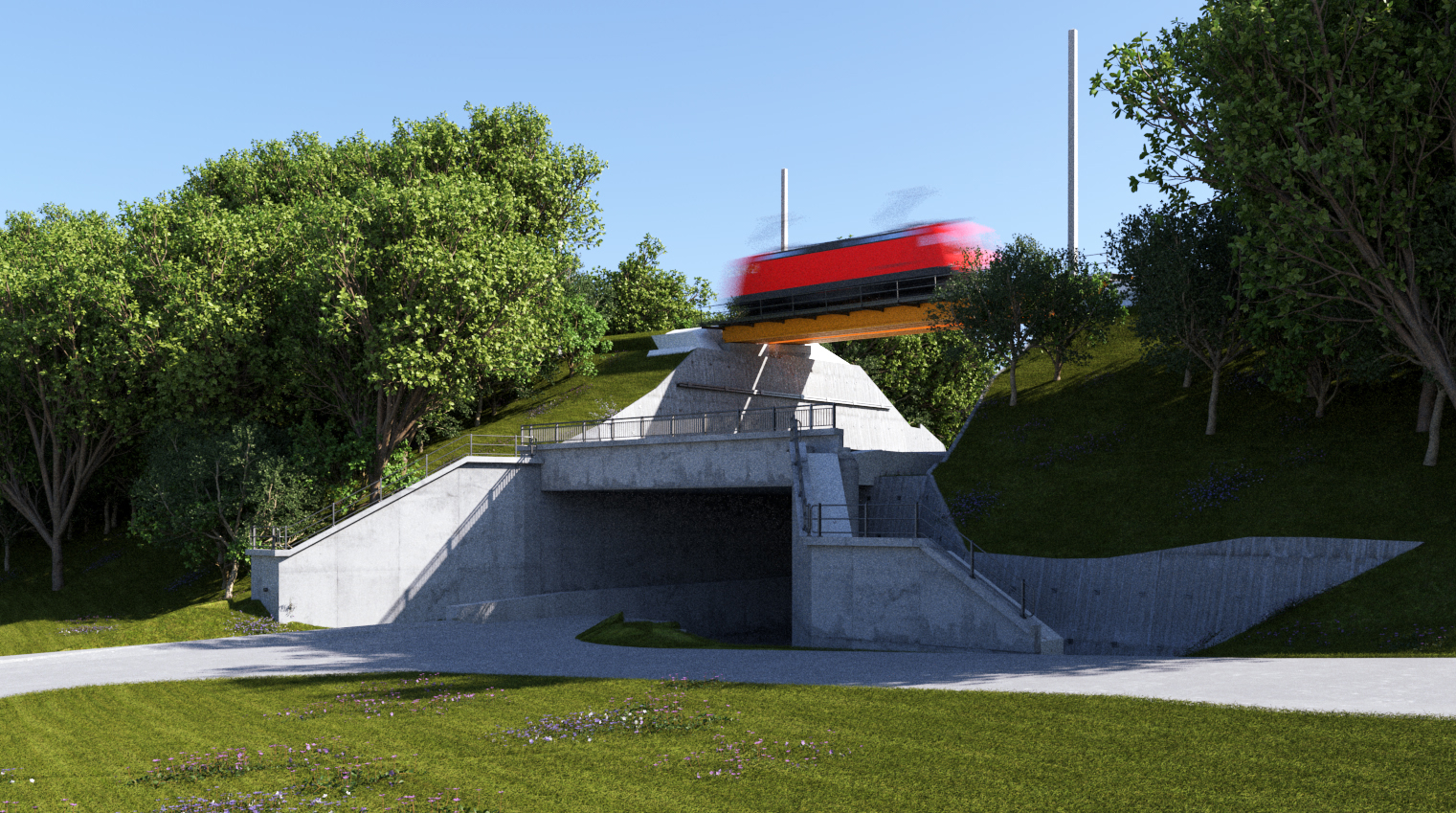Tullnerbach bridge
The new construction of a bridge structure at the Tullnerbach-Pressbaum railway station is one of the first projects of ÖBB-Infrastruktur AG to be realised with BIM and by PORR. By charging PORR Bau GmbH with the general contractor works, the client benefits from the extensive BIM expertise of the specialists from pde. Applying BIM to civil engineering is, however, a crucial pilot project for everyone involved as BIM has only recently become a topic in civil engineering and even more so in public calls for tender.
Client
ÖBB Infrastruktur AG
Completion
12/2022
Location
Tullnerfeld-Pressbaum
Scope of services
BIM-supported construction accounting and construction scheduling
pde period of service
2021 – 2022
Service areas
BIM

Building Information Modeling, BIM for short, has also been recognised by ÖBB-Infrastruktur as a trailblazing method for realising construction projects and one which is becoming established in every area of building construction and civil engineering. Even if the Austrian federal railways have been looking at developments in and around Building Information Modeling for some time, they have not acquired much practical experience with it – until now.
One of the projects was acquired in mid-2021 under the technical lead of the railway construction and structural engineering department of PORR Bau GmbH with the BIM Excellence department of pde Integrale Planung GmbH.
BIM Excellence can look back on many years of experience with BIM in building construction. That’s why we are especially proud to now be able to oversee the topic of BIM in civil engineering and contribute our knowhow.
Martin Hahn, the on-site construction manager expects the application of BIM to make the accounting process simpler and that the construction schedule will lead to better resource management.
This is new territory for everyone involved in the project and so the curiosity and anticipation of a successful beacon project are palpable.
BIM requirements
The requirements for the BIM-supported processes and applications were clearly defined by ÖBB. The use of model data in the construction site process is therefore front and centre.
One focus in this pilot project is on construction accounting, which will be based on models. Conventional accounting is based on the following process: Design – build – documentation, using measurement sheets with mathematical derivation and sketches, which are prepared manually on site, i.e. on the construction site. In contrast, for this project, invoicing is based on the actual quantities used, as documented in the BIM model (including any changes), and this replaces the time-consuming data exchange of the measurement sheets via data carriers. Everyone involved in the approval process works on and with the BIM model, a digital twin of the structure, which not only contains the geometry of the structure, but also all materials, properties and time-based information related to the construction site. The pde BIM management initiates and then oversees this process. This eliminates the need for modelling on the construction site of this project – the models come from the planner. In this case, we as PORR are the users of the model data.
Over the 16 months planned for the project, around 3,800 BIM elements will be processed and more than 200 items invoiced using BIM.
It is exciting to think how much time can be saved with this process compared to conventional means and also the extent to which the cooperation with the developers can be simplified and improved.
Decisions for the design, planning and operations can be unequivocally improved thanks to the transparent data situation and coordinated communication. A more efficient decision-making process helps to avoid unnecessary slips and thereby saves the project both time and money. In parallel, the comprehensive options opened up by the BIM model allow a quality-assurance process to be initiated.
With this project, PORR’s BIM journey in railway construction and structural engineering is truly gathering speed.


